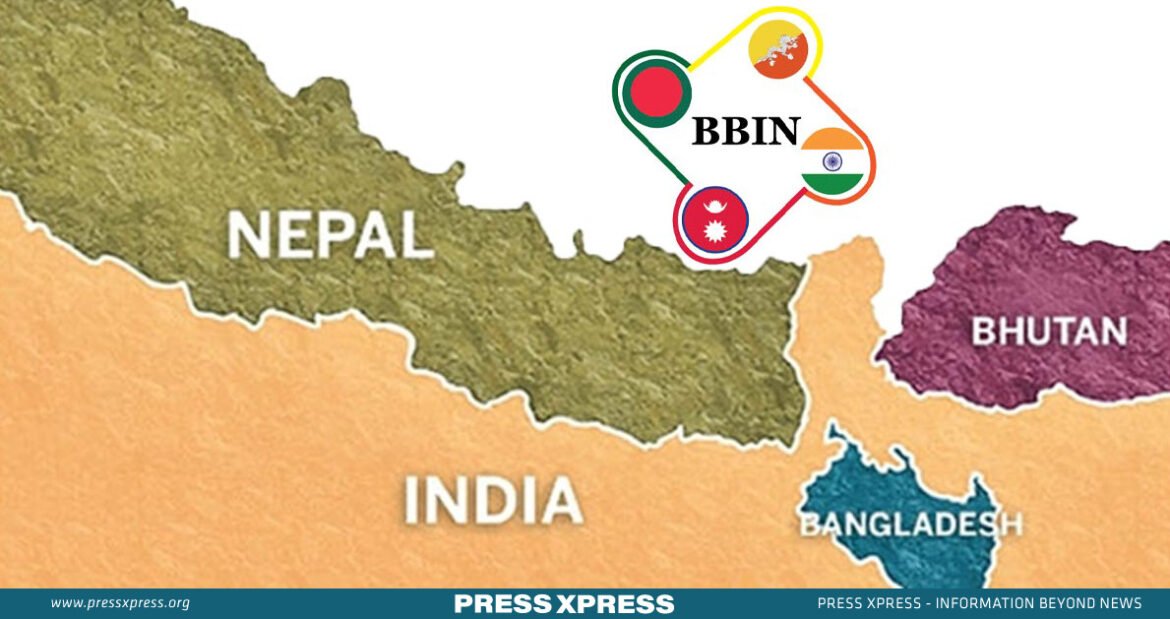Bhutan’s potential return to the BBIN process underscores the enduring relevance and significance of regional cooperation initiatives in driving socio-economic development and fostering closer ties among neighboring nations
In a recent development, Bhutan has signaled its intention to reengage with the Bangladesh-Bhutan-India-Nepal (BBIN) process, potentially marking a significant milestone in regional cooperation. This indication was made by a Bhutanese delegation during a meeting held at the Pan Pacific Sonargaon Hotel in Dhaka from 5-6 March 2024, focused on the implementation of the BBIN Motor Vehicles Agreement (MVA), as stated in a foreign ministry press release.
You Can Also Read: 2024 Run-Up: Trump Leads GOP Race, Biden Dominates Democratic Front
Despite Bhutan’s previous reservations over sustainability and environmental concerns, there are indications of a potential shift in its stance towards the BBIN MVA project. The original BBIN MVA was signed by all four countries in 2015, but Bhutan had initially decided not to endorse the plan due to these concerns.
Embracing Opportunities for Economic Growth
The BBIN MVA, once operationalized, is expected to catalyze economic growth by facilitating smoother trade and commerce among participating nations. Moreover, it holds the promise of fostering closer people-to-people ties, thereby nurturing trust and understanding among member countries—a crucial foundation for sustained regional cooperation.
During the deliberations, all participating nations reaffirmed their unwavering commitment to the early implementation of the BBIN process, underscoring the shared vision of fostering greater regional cooperation. The BBIN MVA, aimed at regulating passenger, personal, and cargo vehicular traffic among Bangladesh, Bhutan, India, and Nepal, was initially signed on 15 June 2015 in Thimphu, Bhutan.
This recent meeting marks a significant step forward in the BBIN process, especially considering the context of the last meeting held in March 2022 in New Delhi, India. Bhutan’s active consideration to rejoin the initiative reflects a renewed sense of commitment towards bolstering sub-regional connectivity and cooperation.

About BBIN
As Bhutan contemplates rejoining the BBIN process, the prospects for enhanced regional integration and economic collaboration appear promising. Continued dialogue and concerted efforts among member nations are imperative to realize the full potential of the BBIN framework and usher in a new era of prosperity and cooperation in South Asia.
The BBIN Connectivity Project emerged as a response to the impasse faced by the South Asian Association for Regional Cooperation (SAARC) in establishing a regional motor vehicles agreement during a summit held in Nepal in 2014. The inability to reach a consensus stemmed largely from opposition voiced by Pakistan.
Central to the BBIN initiative is the Motor Vehicles Agreement (MVA), which aims to establish an economic corridor linking Bangladesh, Bhutan, India, and Nepal via road networks. While Bangladesh, India, and Nepal have ratified the agreement, Bhutan, though a signatory, is yet to formalize its ratification, delaying the full enactment of the MVA.
The Asian Development Bank (ADB) has played a pivotal role in supporting the BBIN project as part of its South Asian Subregional Economic Cooperation program.
Enhancing Trade Efficiency
Trade between Bangladesh, Bhutan, India, and Nepal faces significant challenges due to various factors. These include inadequate infrastructure at border crossings, cumbersome paper-based procedures, restrictive policies, and inefficient logistics for cargo handling. The geographical complexity exacerbates the situation, particularly for landlocked mountainous countries like Bhutan and Nepal. Moreover, the limited connectivity, with only one road connecting India’s northeastern states to the mainland through the narrow Siliguri Corridor, further complicates matters.
Despite these challenges, the potential for trade among these four countries is immense. Between 2005 and 2019, trade between the BBIN countries increased six-fold. However, there is still considerable untapped potential, with Bangladesh at 93%, India at 50%, and Nepal at 76%.
Currently, trade between these nations requires extensive documentation procedures, with customs officials examining a high percentage of goods at some borders. Adopting advanced risk management practices could expedite the clearance process significantly.
According to World Bank analysis, the implementation of the BBIN Motor Vehicles Agreement (MVA) would result in substantial benefits.
Early implementation of the BBIN MVA holds the promise of shorter transport routes, reduced travel times, lower costs, and a smaller carbon footprint. This underscores the importance of prioritizing and expediting the implementation of this agreement to unlock the full potential of trade and economic cooperation within the BBIN region.
In conclusion, Bhutan’s potential return to the BBIN process underscores the enduring relevance and significance of regional cooperation initiatives in driving socio-economic development and fostering closer ties among neighboring nations. As the momentum towards greater integration continues to build, the BBIN framework stands poised to unlock a myriad of opportunities for shared growth and prosperity in the sub-region.


